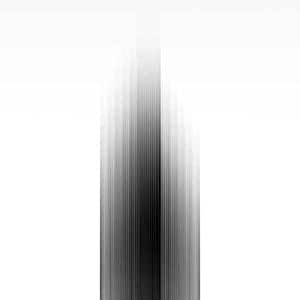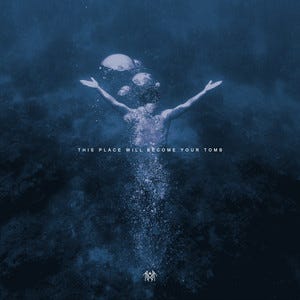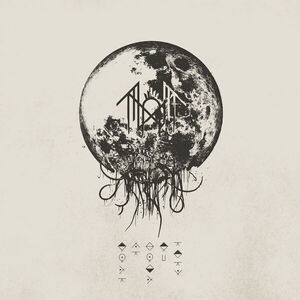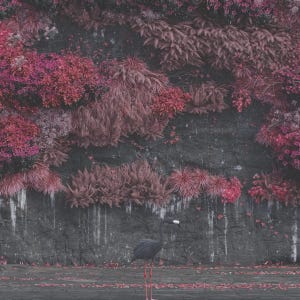Christian Medievalist’s Breakdown of Sleep Token
I reflect on Sleep Token’s symbolic discography by demonstrating how each album syncs with the seven days of creation in Genesis and Ptolemy’s geocentric model
Sleep Token is a cryptic progressive metal band that is gaining much interest in the culture due to their ability to play highly euphoric music through the harmonious conjunction of blending multiple music genres into their songs, causing them to stand out compared to most artists in the musical realm. Regarding the lore behind the band, there are many theories as to the relationship between Vessel and the Sleep deity who saved him at the beginning of this story.
I may write about Sleep in more detail in a later writeup, however, here I will provide what I believe to be the bedrock for all the magic and symbolism which Sleep Token lore is built upon, thus enhancing their ability to create enchanted music with symbolically rich lyrics and celestial melodies pleasing towards a wide range of listeners. Let us look at the book of Genesis and the attributes of the heavenly luminaries (i.e., the planets).
Days of Creation and Octave Scale
If one pays attention, they will see that each album released so far links up with the seven days of creation in Genesis:
Day One (do) “The Night Does Not Belong to God” (God separated light from darkness)
Day Two (re) “This Place Will Become Your Tomb” (God divided waters from waters)
Day Three (mi) “Take Me Back to Eden” (God made grain and fruit bearing plants)
Day Four (fa) “Even in Arcadia” (God created the sun, moon, and stars)
If we are thinking like Christians—which, Vessel (the main genius behind the band) clearly has a background in Christian studies—the pattern is obvious. Call me prophetic, but the next albums will look something like this:
Day Five (sol) “battling the gods” (God made swarm creatures)
Day Six (la) “taking dominion over the gods” (God placed Adam to rule in the garden)
Day Seven (ti) “blessings and curses of his journey” (rest and banishment from Eden)
Notice how the octave scale is integrated into each week, with the octave note (do) beginning the next weekly cycle. The octave scale is also integrated into the cosmological structure of the universe, hence The Music of the Spheres.
Genesis and the Planets
Just by looking at the song titles in each album, it is made even more evident that this pattern is being followed.
Sundowning:
1. The Night Does Not Belong to God
2. The Offering
3. Levitate
4. Dark Signs
5. Higher
6. Take Aim
7. Give
8. Gods
9. Sugar
10. Say That You Will
11. Drag Me Under
12. Blood Sport
“In the beginning God created the heaven and the earth. And the earth was without form, and void; and darkness was upon the face of the deep. And the Spirit of God moved upon the face of the waters. And God said, Let there be light: and there was light. And God saw the light, that it was good: and God divided the light from the darkness. And God called the light Day, and the darkness he called Night. And the evening and the morning were the first day.” (Ge 1:1-5, KJV)
The first album (Sundowning) highlights aspects in the beginning of creation when God creates heaven and earth (Gods, and The Night Does not Belong to God); the Spirit hovering over the waters (Levitate); and God separating the light from darkness and calling it good (light is bright and good like Sugar, and Dark Signs matches the darkness).
In track one, the lyrics open with the depiction of something you would read at the beginning of a holy book:
“When you live
By daylight
With angels
At your side
In order now
Bestowed by
The light of
The Sunrise” (The Night Does Not Belong to God)
The chorus then repeats “The night comes down like heaven,” switching from a scene of light to that of darkness. Bloodsport’s lyrics have somewhat abstract and primordial language like, “Somewhere the atoms stopped fusing” and “Out there Stuck in a quantum pattern,” which give an image of formless waters in the abyss.
In Ptolemy’s Geocentric Model, the first luminary closest to the earth is Luna. The moon has affinity with darkness, yet she is also capable of providing light during the night—hence her connection to day one of creation.
[Image by Sleep Token -Fair use, https://en.wikipedia.org/w/index.php?curid=73207460]
This Place Will Become Your Tomb:
1. Atlantic
2. Hypnosis
3. Mine
4. Like That
5. The Love You Want
6. Fall for Me
7. Alkaline
8. Distraction
9. Descending
10. Telomeres
11. High Water
12. Missing Limbs
“And God said, Let there be a firmament in the midst of the waters, and let it divide the waters from the waters. And God made the firmament, and divided the waters which were under the firmament from the waters which were above the firmament: and it was so. And God called the firmament Heaven. And the evening and the morning were the second day.” (Ge 1:6-8)
“Let’s talk about chemistry” pertaining to the second album. In connection with the water theme in day two of creation, we see titles like Atlantic, Descending, and High Water. Perhaps Telomeres, being a type of protective barrier at the ends of chromosomes, is in connection to the firmament barrier which God placed between heaven and earth to protect the sublunar sphere from solar rays above.
The next planet would be Mercury, which is affiliated with Hermes in Greek mythology. Like moving through various waters, Hermes (the messenger god) is tied to the waters of knowledge—this is how we get the term hermeneutics. Knowledge is often connected to waters, hence Wormwood in the Bible poisons the waters/knowledge flowing out from the second Temple (Rv 8:11) juxtaposed to the sweet waters that flow from the temple of Christ (Jn 2:19; 3:14; Ezk 37).
There is a bond here with alchemy, which, the song Alkaline (an aqueous solution) touches on this with lyrics like “she’s not acid nor Alkaline.” Hypnosis also gives off alchemical vibes by changing the state of one’s consciousness.
In alchemy, Hermes is affiliated with enlightenment through the intellect, whereas Aphrodite (Venus’ Greek counterpart) is enlightenment through physical interaction—a form of ergetic knowledge apprehension juxtaposed to contemplative (ergetic being a term coined by Jewish historian Amos Funkenstein).
When combined, the alchemist becomes a Hermaphrodite (in a spiritual/metaphorical sense). Therefore, in the following album, Ascensionism is a twisted form of this. Although Vessel becomes more powerful and expresses gratitude to Sleep through his offerings (thus the pauldron that blossoms from his left shoulder) something deep within his being knows that she (or “he” depending on one’s interpretation of the deity) is not good for him—ergo, the struggle between Vessel and the deity begins to manifest more evidently as the albums progress.
Take Me Back to Eden:
1. Chokehold
2. The Summoning
3. Granite
4. Aqua Regia
5. Vore
6. Ascensionism
7. Are You Really Okay?
8. The Apparition
9. DYWTYLM
10. Rain
11. Take Me Back to Eden
12. Euclid
“And God said, Let the waters under the heaven be gathered together unto one place, and let the dry land appear: and it was so. And God called the dry land Earth; and the gathering together of the waters called he Seas: and God saw that it was good. And God said, Let the earth bring forth grass, the herb yielding seed, and the fruit tree yielding fruit after his kind, whose seed is in itself, upon the earth: and it was so. And the earth brought forth grass, and herb yielding seed after his kind, and the tree yielding fruit, whose seed was in itself, after his kind: and God saw that it was good. And the evening and the morning were the third day.” (Ge 1:9-13)
Upon the album cover, the plantlike tentacles dripping from the moon clearly links up with day three since God created vegetation on this day. Granite and Euclid (an ancient Greek geometer) is in connection to God brining land and form into His creation. Vore (short for Vorarephilia) is an erotic desire to be physically consumed or to bite at one’s object of lust—exactly what Adam and Eve did when they voraciously ate of the forbidden fruit. God also created grain and fruit bearing plants on this day, hence, the song Take Me Back to Eden fits well here.
The third planet out from earth in Ptolemy’s system is Venus. She is the Roman goddess of desire, beauty, fertility and a host of benefic qualities. In traditional astrology, not all benefic qualities are beneficent, thus in Aqua Regia we see, “All of Eden’s vices running through my veins.” Throughout the rest of the songs, there is an intoxication of love that narcotizes Vessel, hence the dark and deviant sides of Chokehold and The Summoning.
By the same token, sobriety tries to bleed through as Vessel is caught “reading by the sunrise” which is shunned upon by Sleep (Are You Really Okay?). Although this song may be in regard to someone else who had struggled with cutting, symbolism is multivalent, meaning it could also reflect the trickery of Sleep pretending to show care and affection for Vessel when he was at his lowest of lows. At this point, he is still too weak to break free from her manipulative power over him.
Even in Arcadia:
1. Look to Windward
2. Emergence
3. Past Self
4. Dangerous
5. Caramel
6. Even in Arcadia
7. Provider
8. Damocles
9. Gethsemane
10. Infinite Baths
“And God said, Let there be lights in the firmament of the heaven to divide the day from the night; and let them be for signs, and for seasons, and for days, and years: And let them be for lights in the firmament of the heaven to give light upon the earth: and it was so. And God made two great lights; the greater light to rule the day, and the lesser light to rule the night: he made the stars also. And God set them in the firmament of the heaven to give light upon the earth, And to rule over the day and over the night, and to divide the light from the darkness: and God saw that it was good. And the evening and the morning were the fourth day.” (Ge 1:14-19)
Lastly, we have arrived at their recent album, and sure enough astral language is more concentrated in their lyrics since God created the luminaries on the fourth day of creation, e.g. “The only good girl on this side of the moon” (Provider). “Halt this eclipse in me,” repeated in Look to Winward and Infinite Baths, is not lyrical laziness on Vessel’s behalf. Their music, much like the Psalms and Prophetic language in the Bible is often repeated to grab the listener’s ears. Just as Jesus (the light of the world) repeated astral language from the Old Testament in his Olivet Discourse, we see Vessel repeat astral language throughout his songs:
Of Jesus, “Immediately after the tribulation of those days the sun will be darkened, and the moon will not give its light, and the stars will fall from heaven, and the powers of the heavens will be shaken.” (Mt 24:29; see also Is 13:9-10 and Hg 2:21)
Of Vessel, “Midnight in my mind’s eye
Drowning out the daylight. . . .
I’ve got solar flares for your dead gods
Dark days for your solstice” (Emergence)
The sun moon and stars were also placed to rule the night and day, hence Damocles is a song in connection to the Greek parable by which the ruler (Dionysius II) swaps places with a lower-class man (Damocles) for the evening to show him that being a king is not easy. Dangling above the throne, Dionysius installed a sword hanging by a single strand of horsehair, which by any moment could fall and kill Damocles.
The moral of the story is that although the life of a ruler may seem easy, it comes with a higher potential of being assassinated by those jealous of his power—thus Vessel says, “If only Damocles would hit me back,” since Vessel knows that he is “killing the game” in music right now, but his fans need to understand that it is not easy to do what he does—especially since he has enemies knocking at his door (spoken of more in Caramel). Clever. What was also clever were the timings for releasing Emergence, Caramel, and Damocles in connection to astral phenomena happening during the time of their release dates.
Luminaries resemble jewels and are kingly (hence Vessel is iced out now, aesthetically), which is why we see much reference to brightness and gold throughout the lyrics in the album like, “I got eyelids heavy enough to break diamonds” (Look to Windward), “Sapphire on my white gold” (Emergence), and “What if the diamond days are all gone” (Damocles).
Solus is the fourth luminary from earth, which is why there is golden and fiery imagery throughout the album reflected in the visuals and lyrics. Caramel is golden and “sticks,” which, interestingly, Vessel wants the eclipse in him to “halt” or stick. The banners burning throughout the visuals for each song also show the power of the sun: being a benefic Provider of light, or Dangerous and malefic if too close. Words like “fire,” “burning,” “hellfire,” and “flares” mixed with the decorative imagery of jewels and precious metals, creates a more scintillating vocabulary throughout the album. The cover art has warm-colored vegetation, and even Vessel’s aesthetic now has gold gilt upon his mask and cloak (complemented by the new vestments of the other bandmembers who now have golden skulls, gold chains integrated with their knightly chainmail, and gold lining upon their mantles).
Vessel is now glorious and powerful at this point in the story but knows that he got to where he is now because of his covenant with Sleep. However, the lines become more blurred over time as to whether it was a feint light in the distance ultimately protecting Vessel from being drowned into oblivion or Sleep herself. As Vessel reflects upon all this from his throne, it is likely that the next album—having affinity with Mars, war, and swarms (for Israel’s enemies are connected to swarms of locusts in Joel 1:4)—will be of Vessel honing his skills by battling the gods and doing some more soul searching in preparation to overcome Sleep.
As for the two houses introduced for the fans to choose from (Feathered or Veridian), even their icons—one being a feather and the other crossed swords—represent flames. Feathers are pointed and float like the flickering tongue of a flame, whereas swords (also pointed as a flame) produce a fiery sting when jabbed into the flesh.
Chiasm
The recent album seems to be written in the form of chiasm (ABCDCBA), i.e., track one (Look to Windward) repeats “Will you halt this eclipse in me” while the final track (Infinite Baths) repeats this same line right before the instrumental outro. This chiastic pattern is also found in the days of creation:
Day One (A), light and darkness ~ Day Seven (A), blessings and curses
Day Two (B), waters divided by waters ~ Day Five (B), water and land swarms
Day Three (C), bread and wine plants (kingly food) ~ Day Six (C), dominion of man
Day Four (D), completeness: swarms of ruling luminaries in the firmament
Conclusion
This brings us to a close since the rest of this cosmological and symbolically rich story is not yet finished. Will we see a redemptive telos to this enchanting play by which Vessel breaks free from Sleep’s manipulative spell by attuning himself with the True Light, or like with Lucifer who was adorned with beauty and power, will we see Vessel fall to his pride in the end? Time will tell…





